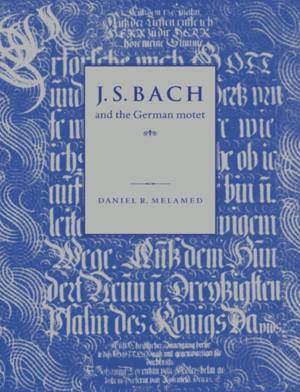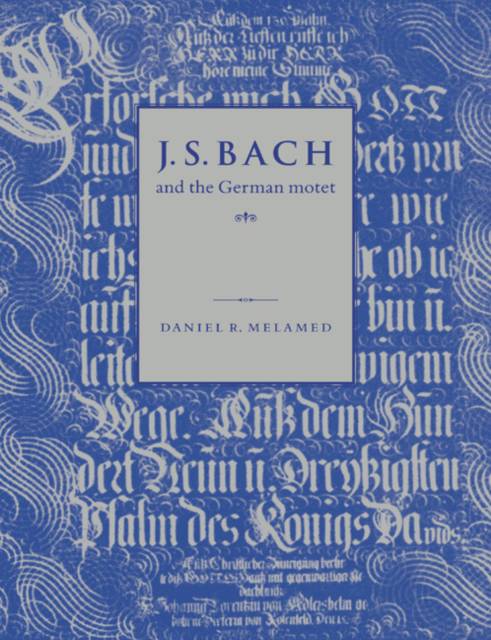
- Afhalen na 1 uur in een winkel met voorraad
- Gratis thuislevering in België vanaf € 30
- Ruim aanbod met 7 miljoen producten
- Afhalen na 1 uur in een winkel met voorraad
- Gratis thuislevering in België vanaf € 30
- Ruim aanbod met 7 miljoen producten
Zoeken
Omschrijving
The motets of J. S. Bach are probably the most sophisticated works ever composed in the genre. Nevertheless, Daniel Melamed maintains, the view that they constitute a body of work quite separate from the German motet tradition is mistaken. He starts by considering the eighteenth-century understanding of the term itself and finds that Bach's own use does indeed agree with his contemporaries and that his motets are rooted in the conventions of the time, particularly in matters of musical construction, performing forces, and type of text. A fresh look at the repertory shows that Bach composed motets all through his career and an appreciation of the contemporary conception of the motet sheds light on questions of how and why Bach himself used the form. Professor Melamed also finds plenty of evidence that motets and motet style played an important role in Bach's exploration of the musical past.
Specificaties
Betrokkenen
- Auteur(s):
- Uitgeverij:
Inhoud
- Aantal bladzijden:
- 248
- Taal:
- Engels
Eigenschappen
- Productcode (EAN):
- 9780521619769
- Verschijningsdatum:
- 17/02/2005
- Uitvoering:
- Paperback
- Formaat:
- Trade paperback (VS)
- Afmetingen:
- 189 mm x 246 mm
- Gewicht:
- 462 g

Alleen bij Standaard Boekhandel
+ 152 punten op je klantenkaart van Standaard Boekhandel
Beoordelingen
We publiceren alleen reviews die voldoen aan de voorwaarden voor reviews. Bekijk onze voorwaarden voor reviews.











